Search
Search within
1447 results found
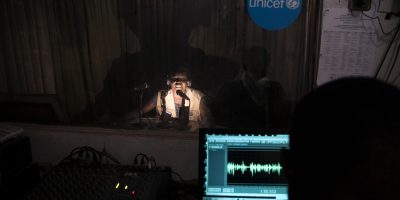
Briefing
Social Mobilization and Community Engagement Central to the Ebola Response in West Africa: Lessons for Future Public Health Emergencies.
Following the World Health Organization (WHO) declaration of a Public Health Emergency of International Concern regarding the Ebola outbreak in West Africa in July 2014, UNICEF was asked to co-lead, in coordination with WHO and the ministries of health of…
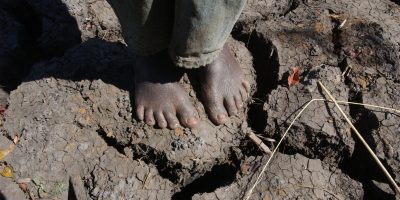
Background report
The Pygmy Mimic
The Pygmy mimic is an extremely persistent colonial trope that continues to inform contemporary anthropological understandings of Africa’s Pygmy populations. Mimicry is now understood as being a key component of the social reproduction of a distinct Pygmy way of being.…
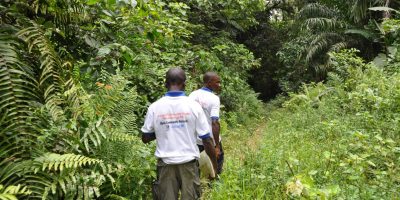
Background report
Understanding Social Resistance to the Ebola Response in the Forest Region of the Republic of Guinea: An Anthropological Perspective
Why did Ebola response initiatives in the Upper Guinea Forest Region regularly encounter resistance, occasionally violent? Extending existing explanations concerning local and humanitarian “culture” and “structural violence,” and drawing on previous anthropological fieldwork and historical and documentary research, this article…
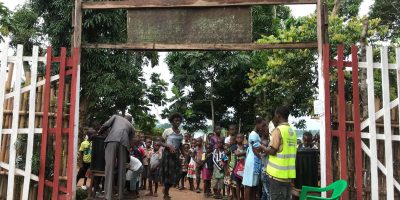
Briefing
UNICEF Annual Report 2016, Democratic Republic of Congo
Despite its vast physical size and abundant natural resources, the Democratic Republic of Congo (DRC) is one of the poorest countries in the world, ranking 176th out of 188 countries and territories in the 2015 Human Development Index. Child poverty…
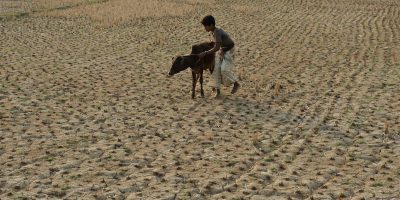
Background report
Zoonotic Diseases: Who Gets Sick, and Why? Explorations from Africa
Global risks of zoonotic disease are high on policy agendas. Increasingly, Africa is seen as a 'hotspot', with likely disease spillovers from animals to humans. This paper explores the social dynamics of disease exposure, demonstrating how risks are not generalised,…
Background report
Contesting Authority: Armed rebellion and military fragmentation in Walikale and Kalehe, North and South Kivu
Eastern DRC continues to be plagued by violence and dozens of armed groups. Yet, these groups—and how they interact with their social and political environment—remain poorly understood. This report analyses their involvement in public life in the territories of Kalehe…
Research paper
Participatory Ethnographic Evaluation and Research: Reflections on the Research Approach Used to Understand the Complexity of Maternal Health Issues in South Sudan
How can contextualised data be collected in a short time in conflict-affected sites? This paper shows how a Participatory Ethnographic Evaluation and Research (PEER) approach can overcome many of the challenges of conducting research in such conditions. Here, the authors…
Research paper
Deworming Delusions? Mass Drug Administration in East African Schools
Recent debates about deworming school-aged children in East Africa have been described as the ‘Worm Wars’. The stakes are high. Deworming has become one of the top priorities in the fight against infectious diseases. Staff at the World Health Organization,…
Research paper
Low Prevalence of Intestinal Schistosomiasis Among Fisherfolk Living Along the River Nile in North-Western Uganda: a Biosocial Investigation
This article asks: why is the prevalence of S. mansoni so low among fisherfolk in northern Uganda? Taking a biosocial approach, it suggests that the mass distribution of drugs, free of charge, has had an impact. However, the low prevalence…
Background report
Livelihoods and Conflict in South Sudan
The SLRC South Sudan programme has been working since 2012 to identify and understand the realities of livelihoods, access to basic services, and perceptions of governance in post-independence South Sudan. This briefing paper summarises findings from the publications of SLRC…
Background report
Complexities of Service Delivery and State-Building
The SLRC South Sudan programme has been working since 2012 to identify and understand the realities of livelihoods, access to basic services, and perceptions of governance in post-independence South Sudan. This briefing paper summarises findings from the publications of SLRC…
Background report
Trajectories of International Engagement with State and Local Actors: Evidence from South Sudan
The paper traces shifts in international engagement and the implications of these shifts for understanding the trends in service provision specifically, and recovery and development more generally, in South Sudan. This analysis is intended to offer some direction for the…


